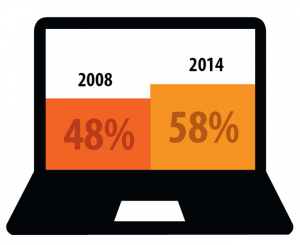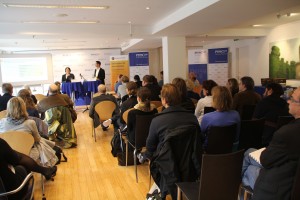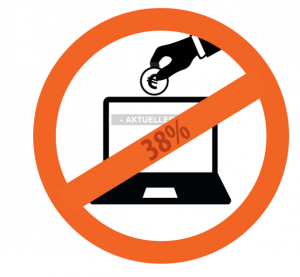ResponseSource study finds German journalists don’t (yet) make full use of online resources
A study we conducted in collaboration with the BITKOM Research showed that journalists in Germany are not using the full potential of web resources.
Over 1,300 German journalists from all sectors and media genres took part in the online survey between March and April 2014. The study focused on the impact of digital technology on journalism as well as on the media industry in Germany. The results which we presented in Munich triggered lively debates in the media and PR sectors in the DACH (German speaking) region of Europe. We will publish an overview of media reactions in our German ResponseSource blog soon. Here are some of the most notable results of the study:
Journalists use approximately a third of their work day or 163 minutes on research and sourcing information. 58 per cent of the research is carried out online, compared to 48 per cent in 2008. 61 per cent of journalists feel they often don’t have enough time for in-depth research for articles, due to increased pressure by technological developments as well as the rising number of job cuts in the media industry.
When asked which internet services they found to be the most important, search engines and emails rank top of the list with 93 per cent and 90 per cent of journalists saying they are “rather important” or “very important” in their daily research. Only 29 per cent identified social media as important sources for news and information, although 79 per cent of journalists said they use Facebook, Google+ and Twitter to distribute their own content. Facebook and Twitter are the most popular social media channels among German journalists. Put into perspective, however, it is interesting to note that twice as many journalists in the UK use Twitter to share content (over 70 per cent, according to a study conducted by Oriella PR network in 2013, compared to 35 per cent of the German journalists that took part in our survey). The higher acceptance of social media among younger journalists (46 per cent of journalists under 35 find social media important for their research compared to 20 per cent of journalists between the age of 55 and 65) seems to indicate a growing trend towards the use of online sources over time.
German journalists use the internet primarily to read and monitor news and topics (87 per cent) and to obtain facts and information (84 per cent). In comparison, only 62 per cent of journalists use the internet “often” or “always” to verify and cross-check sources, and 57 per cent trust the internet as a source of information for the assessment and evaluation of topics.
The study showed that the majority of media outlets represented in the study (64 per cent) offer online content free of charge. 30 per cent of media outlets charge for some or all of their web content. Only 44 per cent of all journalists said they paid for online content at least once. With only 38 per cent of journalists willing to pay for the online version of their own media outlet, the study points to a wider debate which concerns media industries not only in Germany, but around the globe: How can journalism be funded and sustained in the future?
A summary of the study “Medienmacher 2014 – Recherche, Qualitätsanspruch und Finanzierung im digitalen Alltag” (in German) can be downloaded here. Infographics of the most important results are available here.



%20make%20full%20use%20of%20online%20resources%20-%20ResponseSource&_biz_n=0&rnd=744797&cdn_o=a&_biz_z=1745749019384)
%20make%20full%20use%20of%20online%20resources%20-%20ResponseSource&rnd=48076&cdn_o=a&_biz_z=1745749019388)